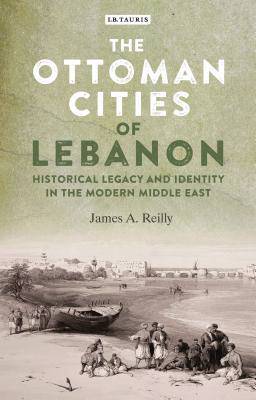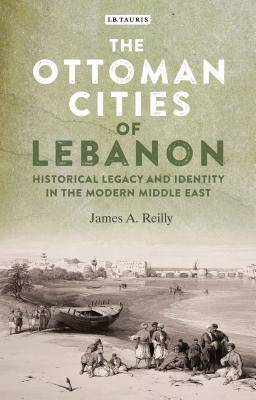
Je cadeautjes zeker op tijd in huis hebben voor de feestdagen? Kom langs in onze winkels en vind het perfecte geschenk!
- Afhalen na 1 uur in een winkel met voorraad
- Gratis thuislevering in België vanaf € 30
- Ruim aanbod met 7 miljoen producten
Je cadeautjes zeker op tijd in huis hebben voor de feestdagen? Kom langs in onze winkels en vind het perfecte geschenk!
- Afhalen na 1 uur in een winkel met voorraad
- Gratis thuislevering in België vanaf € 30
- Ruim aanbod met 7 miljoen producten
Zoeken
The Ottoman Cities of Lebanon
Historical Legacy and Identity in the Modern Middle East
James A Reilly
€ 296,95
+ 593 punten
Omschrijving
Whether defined as essentially 'Turkish', and therefore alien to the Lebanese experience, or remembered in its final years as a tyrannical and brutal dictatorship, the period has not been thought of fondly in most Lebanese historiography. In a far-reaching and much-needed analysis of this complex legacy, James A. Reilly looks at Arabic-language history writing emanating from Lebanon in the post-1975 period, focusing on the three main Ottoman administrative centres of Saida, Beirut and Tripoli. This examination highlights key aspects of Lebanon's current political and cultural climate, and emphasises important points of agreement and conflict in contemporary historical discourse. The 1989 Ta'if Accords, for example, which ended the Lebanese Civil War, were accompanied by calls for reinterpretation of how the country's history could assist in creating a sense of national cohesion. The Ottoman Cities of Lebanon is invaluable to all historians and researchers working on Lebanese history and politics, and wider issues of identity, post-imperialist discourse and nationhood in the Middle East.
Specificaties
Betrokkenen
- Auteur(s):
- Uitgeverij:
Inhoud
- Aantal bladzijden:
- 208
- Taal:
- Engels
- Reeks:
Eigenschappen
- Productcode (EAN):
- 9781784535544
- Verschijningsdatum:
- 30/10/2016
- Uitvoering:
- Hardcover
- Formaat:
- Genaaid
- Afmetingen:
- 137 mm x 218 mm
- Gewicht:
- 317 g

Alleen bij Standaard Boekhandel
+ 593 punten op je klantenkaart van Standaard Boekhandel
Beoordelingen
We publiceren alleen reviews die voldoen aan de voorwaarden voor reviews. Bekijk onze voorwaarden voor reviews.









